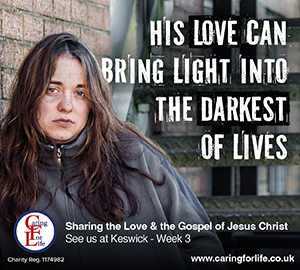Tail wags dog?
Historically, most UK churches ran a central prayer meeting at the church.

This often had a Bible talk at the centre of it (and sometimes, bizarrely, not much prayer). But what started in the 1960s as a radical experiment has now become a standard feature of the life of most evangelical churches: small groups gathering week by week in people’s homes, led by ordinary church members. They may be called Bible study groups, growth groups or a host of other titles.
What for?
But why have we found these groups to be so indispensable to church life? Let’s get back to basics: what is a home group actually for? When you ask a random selection of small group leaders (which I did!), you get a huge range of responses:
• Reading and studying the Bible together
• Praying together
• Mutual support and encouragement
• Friendship/fellowship
• Food!
• Worship
But when you quiz people to find out how they actually spend their time in the small group, you often discover that many groups are given over to what we might call the human needs of the group, rather than on listening to God’s Word together. They eat, they talk, they laugh (a lot!), they share needs, they enjoy each other’s company, they feel supported, loved, affirmed, prayed for.
I try to point out (as gently as I’m able) that this surely has to be the tail wagging the dog. In Acts 2.42, we read a familiar description of what the first Christian community did when they met together: ‘And they devoted themselves to the apostles’ teaching and the fellowship, to the breaking of bread and the prayers.’
They did a whole lot of stuff – but the first thing they did was devote themselves to the apostles’ teaching. All the other activities enjoyed by the gathering of believers sprang out of this fundamental activity – they listened to the authoritative Word of God, delivered to them through his chosen representatives.
And this is a pattern that persisted. In Colossians 3.16 we read: ‘Let the Word of Christ dwell in you richly, teaching and admonishing one another in all wisdom, singing psalms and hymns and spiritual songs, with thankfulness in your hearts to God.’
The Word of Christ
The first Christians did many things when they met together, but the thing that was at the heart of each of them was that the Word of Christ was there – giving shape to their songs, their prayers – even the way they told each other off!
People come to home groups for many reasons. They may be lonely and need company; they may be hungry and need feeding; they may be discouraged, or struggling in their lives, and need support.
But if you are the leader of a home group, you need to have firmly fixed in your mind that the way you will really meet their real needs is to let the Word of Christ from the Bible take centre stage in your time together.
Bacon sandwiches help with the physical hunger. Good-hearted banter will help with social hunger. Understanding and sympathetic listening may help with psychological hunger. But the hunger in our hearts will only be fed by allowing the words of Jesus, and the Bible’s witness to Jesus, to be the main item on the menu for the evening.
Tim Thornborough is the Creative Director at the Good Book Company.



